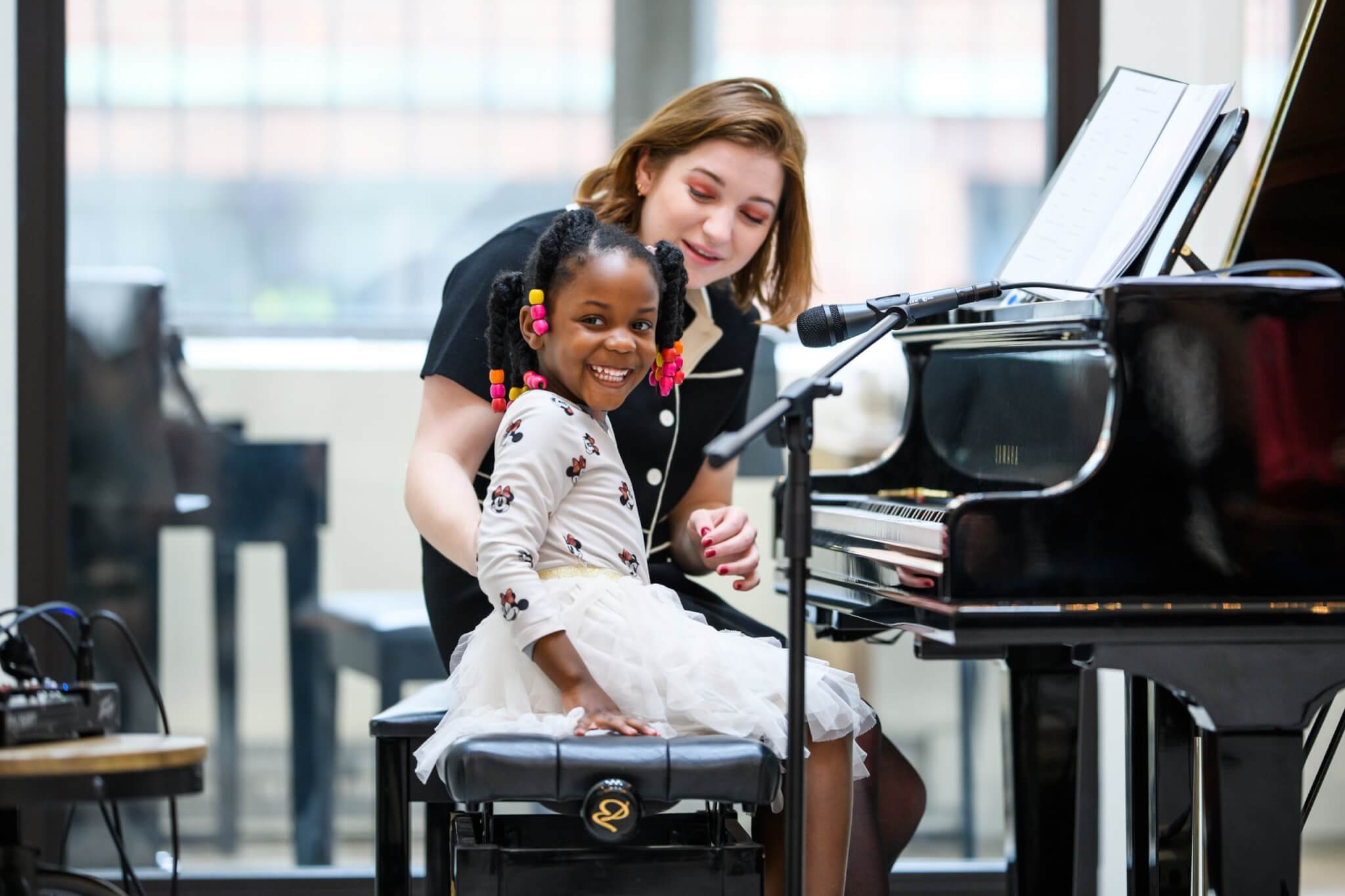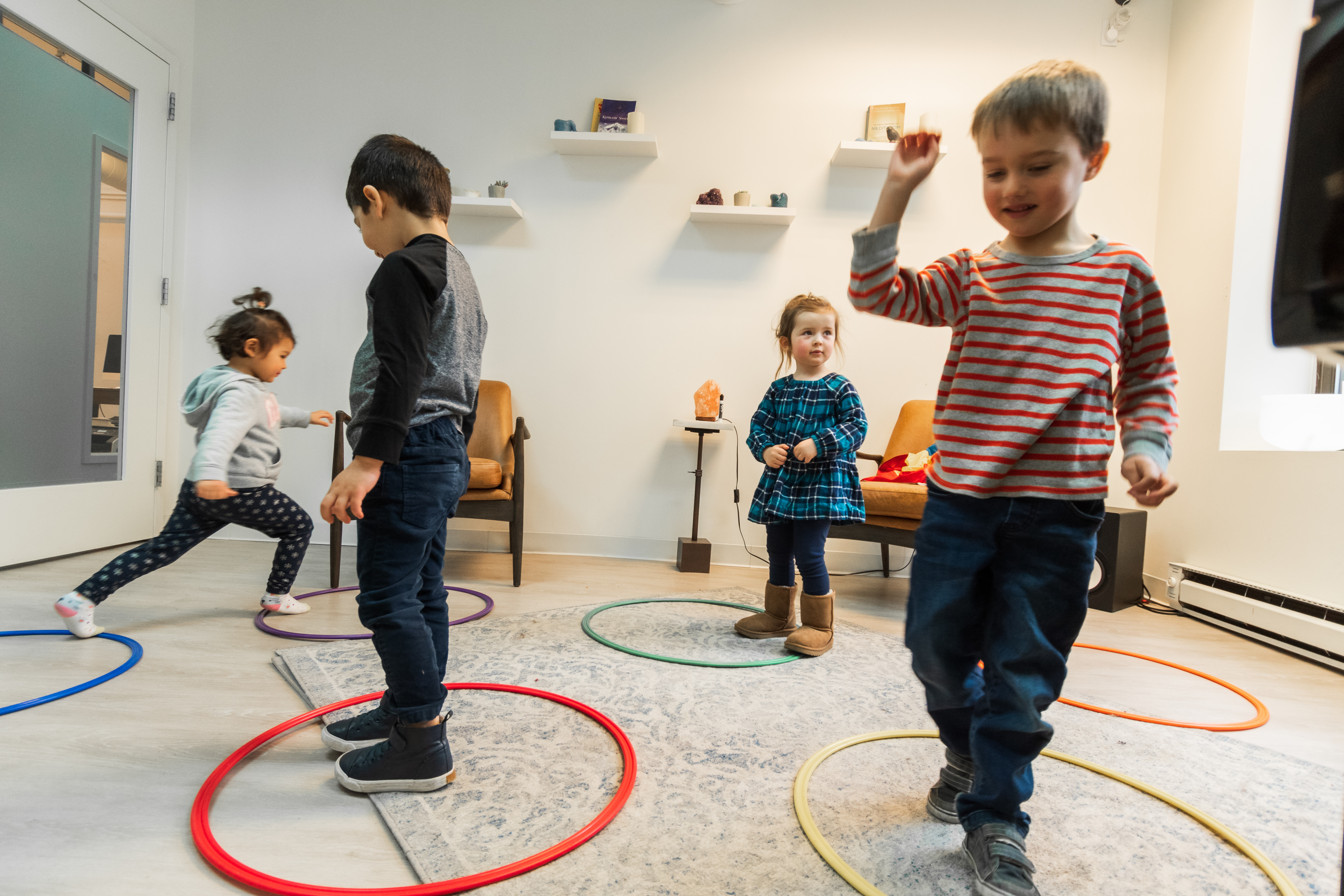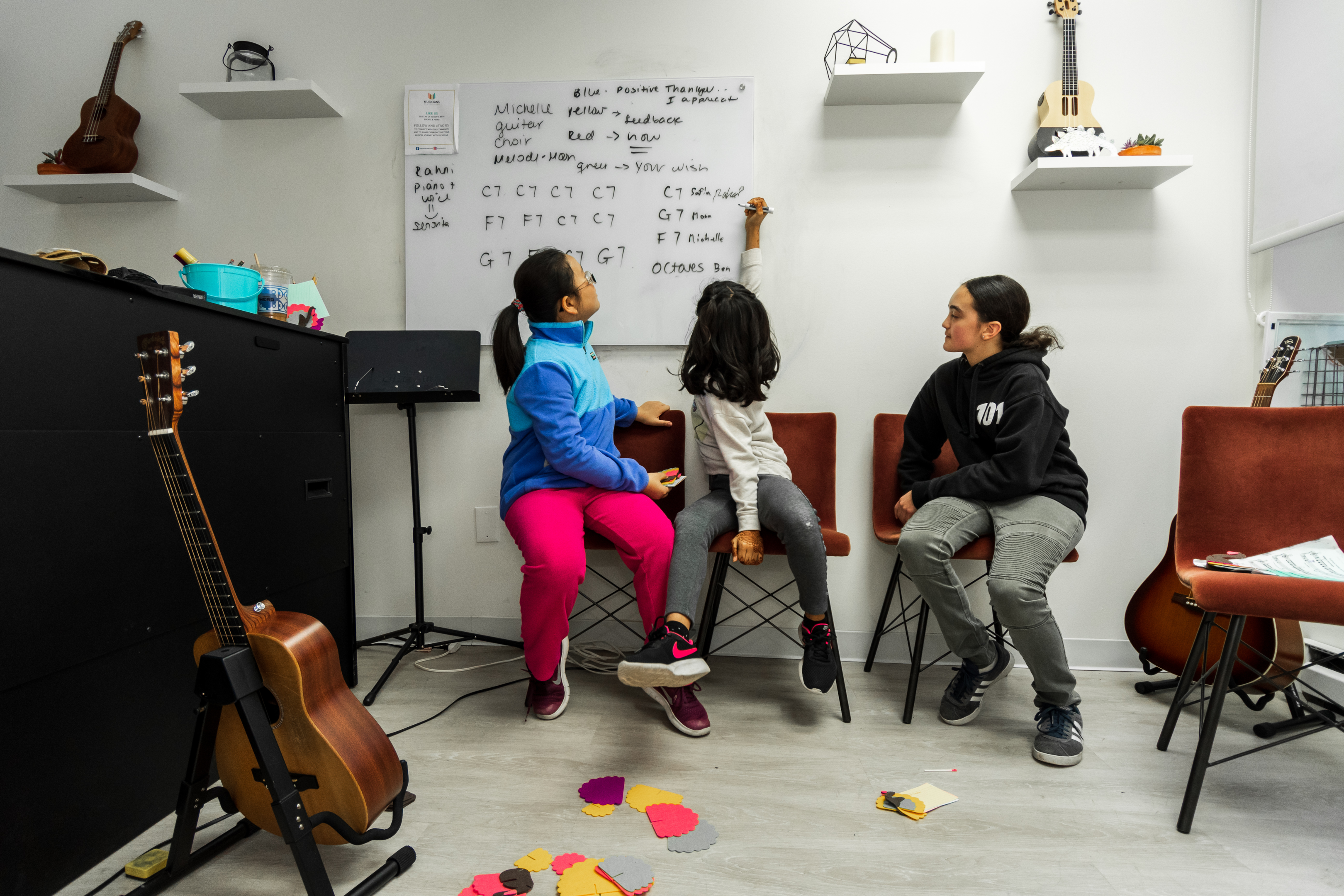Blog
Unlock Their Potential: What Age Should A Child Start Music Lessons?

Parents often ask “What is the best age to start music lessons for my child?” We recommend – expose them to music as early as possible, and when they’re around 3-5, assess them with the help of a music teacher to see if they’re ready to begin lessons.
Learning music has been proven to provide many benefits to children, fostering cognitive development, self-expression, and creativity. But when is the best age to begin music lessons? We’ll explore what factors to consider, the best age range for starting music lessons, and common concerns parents may have.
Early Development and Music Aptitude
In previous articles, we’ve explained the developmental considerations in music education for children, and we learned that while younger children who start learning early have a great foundation to work from later in life – the ideal age to start learning might come later when the child has a high enough threshold of responsibility. In her book, The Development of Musical Skills in Children, Susan Hallam speaks on this:
Musical Sensitivity in Infants
According to Hallam, babies have a natural ability when it comes to music. Even before birth, they can perceive and respond to musical stimuli, and research has shown that fetuses can detect rhythmic patterns and melodic contours in the womb.
After birth, babies continually demonstrate their musical aptitude by showing a preference for infant-directed singing over speech and displaying heightened attentiveness and positive emotional responses to music.
Age-Appropriate Musical Exposure for Children ages 0-5
These early musical abilities children have at a young age set them up for success later in life, and the best way to support them in this stage (known as the preparatory stage) is to expose them to a rich musical environment. You don’t have to be a musical family to be taking advantage of their receptiveness at this early age, but you can do other things – for example, singing lullabies, playing musical instruments, or engaging in musical play with them.
Most children at these ages don’t have the attention span or other learning skills that students have in order to start music lessons, but they are at a great age to start music exposure through informal activities – this is recommended at this stage. Research shows that kids as young as preschool age are also naturally drawn to dancing and moving, so this is the best age to introduce them to activities that develop their sense of rhythm through clapping, body movements, and more.
Early Exposure At Musicians Playground
It’s extremely important to note that the developmental stages in children are very fluid – there’s no precise shift between them.
We found that our preschoolers are often ready to start exposure to musical instruments early on, and we help them get what would ordinarily happen in most studios at ages 5 to 7 – at age 3. Our preschool programming combines teaching music and movement appropriate for preschoolers, and by combining foundational aspects of music with an early study of instruments, we find that we set the kids up for musical success in the future.
If you are looking for a program that allows your child to study an instrument in this age group, we may have the solution for you! And if you have questions about whether your child is at an age to start music exposure, we can assess your child and you can sign them up for a trial lesson by booking a call with one of our membership advisors – we would be able to tell you when they’re ready to start music lessons and recommend an instrument for them.
Cognitive Benefits of Early Exposure
Introducing music to the child during this early can have a positive impact on their cognitive abilities such as language acquisition, spatial-temporal skills, and memory. Musical activities engage multiple areas of the child’s brain, stimulating neural connections and promoting holistic development. While this may not be the best age for them to start lessons with a teacher or to start playing their own instrument, exposing your child to music when they’re this young would be very beneficial to their future learning.
The Initial Instruction Stage (ages 5-7): Exploring Music

As children grow, they can explore basic instruments like drums, xylophones, and handbells (They’ll find other instruments that require more coordination a little challenging). These instruments allow them to experiment with sounds and develop their fine motor skills.
Engaging young children in group lessons and movement activities is a good idea as they encourage social interaction, build confidence, and improve their ability to follow directions. Preschool choirs or music classes provide opportunities for children to learn to sing together and begin expressing themselves through music.
Elementary school age is a good age for kids to start lessons with music teachers, as they will already have started learning in formal education spaces and will have a high enough threshold of responsibility to work with a music teacher.
At this stage, the child will start learning fundamental skills like identifying melody and can learn basic theory and reading musical notation. Understanding musical concepts like rhythm, note values, and reading sheet music will lay the groundwork for further musical development. Since the child’s threshold of responsibility at this age isn’t as high as that of older kids, positive feedback or a reward system based on points works well in keeping them motivated at this stage.
Expose children to a variety of musical genres during this stage to broaden their musical horizons. This lets students develop preferences and appreciate diverse styles. Here at MP, we make it a point to incorporate repertoire appreciation into the music lessons from the beginning.
Learning to play a specific musical instrument, such as the piano, guitar, string instruments or wind instruments can begin during elementary school too. Playing an instrument helps children refine their fine motor skills, hand-eye coordination, and concentration.
Middle School Age: Expanding Musical Horizons
Middle school is a good age for children to explore different instruments and discover their preferences. Encourage your child to try various options through school music programs, private lessons, or after-school clubs. Ages 7-11 are usually when the child selects the musical instrument they wish to specialize in and start learning music more “seriously”.
Middle school is also the right age to teach the child music theory on a deeper level. Concepts such as scales, chords, key signatures, composition, and instrument techniques can be introduced in their lessons, enabling the child to analyze and create their own music. This is also a good age to foster their creative skills through composition, for instance.
High School Age: Becoming the Independent Musician
During high school, dedicated training on the instrument becomes crucial for kids who wish to pursue music seriously. Private lessons, masterclasses, and practice routines help refine their technique and musicality on their respective instrument.
Joining more advanced ensembles, such as youth orchestras or chamber groups, provides valuable performance experience and exposes students to more challenging music. Competitions and festivals offer opportunities for growth and recognition. For those considering a career in music, high school is a pivotal time to prepare for college music programs. Students can focus on auditions and additional studies to strengthen their chances of admission.
Beyond High School: Lifelong Musical Journey
While some kids may choose to pursue music as a profession, others can continue their musical education in college as a major or minor. This path opens doors to careers in performance, composition, education, music therapy, and more. And for kids who do not wish to pursue music professionally, continuing to engage with music as a hobby provides lifelong benefits. Playing in community ensembles or taking part in local performances can bring them joy and fulfillment.
Regardless of career choices, the skills and qualities developed through music— discipline, perseverance, and teamwork—contribute to personal growth and success in various aspects of your child’s life.
So When Should My Child Begin Music Lessons?
Hopefully, by now you have a clearer idea of when the best age to start would be, but it’s important to mention that the developmental stages we have outlined in this article are very fluid – Every child is unique, and their readiness, maturity level, and interest in music may vary. Assess their enthusiasm, attention span, and desire to learn before enrolling them in formal music lessons:
Consider the physical and cognitive capabilities required: Some instruments may require physical coordination or finger dexterity that younger children might not have (like the violin or the drums) while others will be easier for them, like piano and guitar (although they also require coordination). If you’re unsure, consult your child’s teacher on what the best instruments to begin on would be. They will also recommend when the child should start music lessons.
Common Concerns and Misconceptions
“Am I starting too early or too late?” : While there is no one-size-fits-all answer, starting early allows children to benefit from the cognitive and developmental advantages of music education. However, it’s never too late to begin music lessons and explore a passion for music. The right age to start music learning is determined on a case-by-case basis.
Will music lessons affect academic performance? Studies have actually shown that music education for kids can enhance academic performance, particularly in areas like mathematics, language skills, and spatial-temporal reasoning. Music lessons promote discipline, focus, critical thinking abilities, and creativity. In fact, a Harvard Study found that kids who play an instrument for at least three years outperform children who have no instrument training when tested for auditory discrimination, finger dexterity, verbal ability, and visual pattern detection.
What if my child loses interest? Everyone has motivational ups and downs – especially young kids! Your child may lose interest temporarily, but this isn’t out of the ordinary – providing them with a supportive environment can help sustain their passion for music in the long term. Let your children express their interests and be open to them changing -consider alternative approaches, such as trying a different instrument or genre.
How do I choose the right music teachers? This is a very common concern for parents, and we understand why! Putting a young child in music lessons by themselves is scary. We take that responsibility very seriously at Musicians Playground, and we actually have an entire article on the subject of choosing the right instructor for your child (read it here!)

Thinking About Starting Lessons?
By understanding the developmental stages and considering individual factors, parents can decide when their child is at the best age to start music classes. Whether it’s through exposing them to music in infancy, formal lessons during preschool years, or intensive training in middle or high school, each stage contributes to a child’s musical journey and unlocks their potential for lifelong growth. Hopefully, we gave you the insights you need to make that decision.
If you liked this article, we release educational content every month through our newsletter – sign up for our mailing list! And, if you’re ready for your child to begin, book a call and we can get you started. Happy playing!

